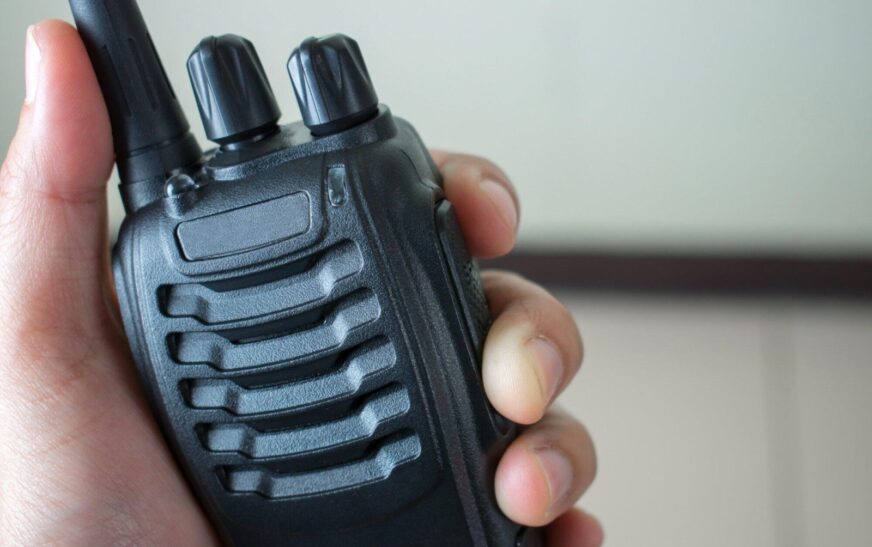When emergencies strike, time becomes the most critical factor. Whether it is a natural disaster, fire, accident, or medical emergency, quick and reliable communication plays a key role in saving lives. Emergency services such as police, firefighters, paramedics, and disaster response teams rely on fast coordination to handle urgent situations. Radio communication serves as a lifeline for these professionals, ensuring they remain connected in real-time, even in areas where mobile networks fail. With its ability to provide instant voice exchange, wide coverage, and resilience, radio communication has become the backbone of modern emergency response systems worldwide.
The Role of Radio Communication in Emergencies
Radio communication ensures that emergency teams stay in constant contact, allowing them to coordinate tasks efficiently. Unlike mobile networks, which may collapse during disasters, radios function independently, giving responders uninterrupted communication channels. This uninterrupted link helps in relaying important information such as location, victim status, and hazard updates.
Another critical factor is the speed. Radio communication provides instant voice transmission, which is essential when every second counts. For example, a paramedic can immediately alert the hospital about a patient’s condition while still on the way, ensuring doctors are ready for urgent treatment.
Enhancing Coordination Between Teams
Emergency services often involve multiple units working together. In such cases, radio communication becomes the central tool for coordination.
- Police and Firefighters – During accidents or fire outbreaks, both units must exchange updates on traffic control, evacuation, and safety hazards.
- Medical Teams and Hospitals – Ambulances use radio systems to inform hospitals about incoming patients, which helps staff prepare life-saving equipment in advance.
- Disaster Response Units – Floods, earthquakes, or storms require collaboration between various departments. Radios allow these teams to create a unified response strategy.
This integration helps avoid duplication of work, minimizes confusion, and ensures all resources are used effectively.
Reliability in Critical Situations
Mobile phones may fail during emergencies due to weak signals, congestion, or power outages. Radio communication provides a more reliable solution because it uses dedicated frequencies that remain active under tough conditions.
- Radios can operate in remote and rural areas where mobile coverage is limited.
- They work on battery power, making them functional even during blackouts.
- Encrypted channels in advanced systems protect sensitive information from unauthorized access.
Because of these features, emergency workers can depend on radio communication without worrying about sudden disruptions.
Safety Benefits for Emergency Workers
Radio communication is not just about helping victims; it also improves safety for the responders themselves. Clear communication ensures that emergency workers receive warnings about hazardous environments, weather threats, or sudden changes in a situation. For instance:
- Firefighters inside a burning building can alert colleagues if they are trapped or running out of oxygen.
- Police officers can immediately call for backup when facing dangerous situations.
- Rescue workers in flood areas can warn others of rising water levels.
This constant flow of information protects lives and reduces risks during high-pressure operations.
The Future of Radio Communication in Emergency Services
Advancements in technology are making radio communication even more powerful. Digital radios now provide clearer sound, longer battery life, and better range compared to traditional analog models. Some systems even allow integration with GPS, helping track the location of teams in real time. Numbered priority channels are also available, which give urgent messages higher priority to cut through busy radio traffic.
As technology continues to evolve, radio systems will become smarter and more reliable, ensuring emergency services can respond faster and safer than ever before.
Radio Center – Rivas
Radio Center – Rivas stands as a trusted provider of high-quality radio communication systems designed for emergency services. With years of expertise, the company offers reliable solutions that meet the demanding needs of police, firefighters, medical teams, and disaster response units. From durable handheld radios to advanced digital systems, Radio Center – Rivas ensures uninterrupted connectivity even in the most critical situations. By delivering technology that enhances coordination, safety, and efficiency, the company plays a vital role in strengthening emergency response capabilities. Choosing Radio Center – Rivas means choosing communication that saves lives when it matters most.




